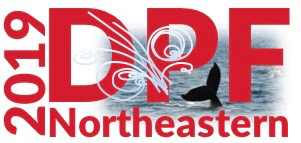Speaker
Description
Science Storytellers is a new public engagement program with a simple aim: to sit elementary-aged children down to interview scientists in the manner of science journalists, and to then write about and share their stories. In a partnership between Science Storytellers and The Open Notebook and with seed funding from the Burroughs Wellcome Fund, we developed and ran the first Science Storytellers program during Family Science Days, a free public event at the 2017 AAAS Annual Meeting in Boston.
The success of this first event exceeded our wildest expectations: During the two days, over 400 kids, coached by science journalists, sat down to have conversations with scientists that lasted 10, 30, sometimes even 45 minutes. We had to pull chairs from other booths to accommodate all the kids who wanted to talk with our scientist volunteers, and many of those scientists stayed on well after the shifts they’d committed to ended. As simple as the idea for the booth seemed, it powerfully demonstrated kids’ appetite for understanding science and scientists in a more personal, individual way—and scientists’ appetite for communicating with the young people upon whom the future of science will depend.
One of our overarching goals with this program is to provide a true alternative to the deficit model of science communication and education. We aim to give a voice to kids and their families by encouraging them to ask questions of scientists that are personally relevant and meaningful, and to then share their stories. Related to this goal is another: to provide scientists a window into the questions and values among community members who are not scientists by profession. Still another goal is to break down barriers and shift the power dynamics between scientists and the public. Sitting down face to face with a scientist is a very different interaction than being in a setting where a scientist is giving a public presentation, even in a casual science cafe or festival setting. The project truly puts kids in the drivers’ seat and invites them to lead the conversation and tell others what they learned from the experience in a creative capacity. By introducing kids and their families to professional science journalists as well, we also aim to begin rebuilding public trust in the media.
We believe this program has great potential for exploring numerous questions in STEM education, communication, and engagement. Does engaging children in conversation with scientists also engage their caregivers? How might this approach also become an informal learning opportunity for adults? Does this kind of informal introduction to the work of scientists help children to develop a science identity? Does meeting science journalists and seeing how they approach their work help to build public trust in the media? This talk will offer a brief overview of Science Storytellers—its mission and goals, feedback we have received, stories from kids who have participated, and also will provide for an exchange of ideas with the audience.
